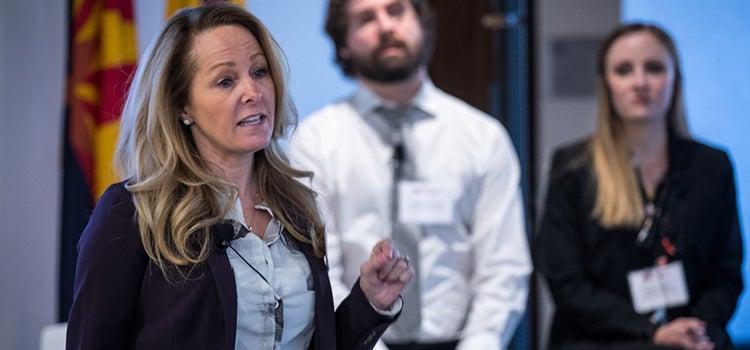
Influencing change with research knowledge
Major challenges for researchers include making their research findings accessible and deploying efforts so that their target audiences engage with their work. Ultimately, researchers expect that such engagements will lead to positive changes. In this way, research knowledge is mobilized.
Knowledge mobilization compels researchers to be mindful of the significance and impact of their scholarship. It reminds scholars that research knowledge ought to be inspired by purposes of social significance and the impact it has to solve problems or puzzles. The Graduate College offers opportunities to doctoral students and postdoctoral fellows to learn the foundations of knowledge mobilization. For instance, students and fellows enrolled in the Knowledge Mobilization (KM) Studio use a toolkit to conceptualize how to mobilize their research findings. In short, the experiences and skills learned in the KM Studio enable participants to put their knowledge into action. To illustrate, as participants design their KM efforts, they are guided by questions such as:
- Who are you trying to give access to your research findings and the knowledge you have produced?
- How do you make this knowledge accessible to your target audience?
- Did your target audience engage or use our research/knowledge in the ways you intended?
- How did the use or engagement with your research/knowledge impact the audience(s) you targeted?
Knowledge mobilization in action
Watch this video to see how knowledge mobilization engages audiences and influences change.
If you have your own knowledge mobilization story, share it with us at graduate.asu.edu/professional-development/knowledge-mobilization.
More stories from the Graduate Insider

Graduate funding deadlines for Fall

How to feel confident in your next interview
Let’s be honest, interviews can feel nerve-wracking. Your palms sweat, your heart races, and you start to second-guess whether you even remember your own name. But here’s the good news: with a little preparation, you can walk into (or log onto) your next interview feeling calm, collected, and ready to shine.
